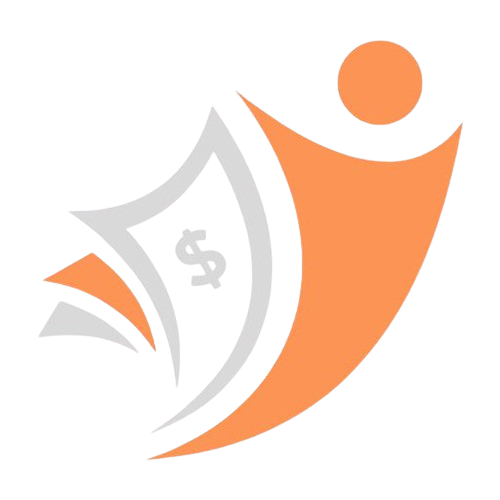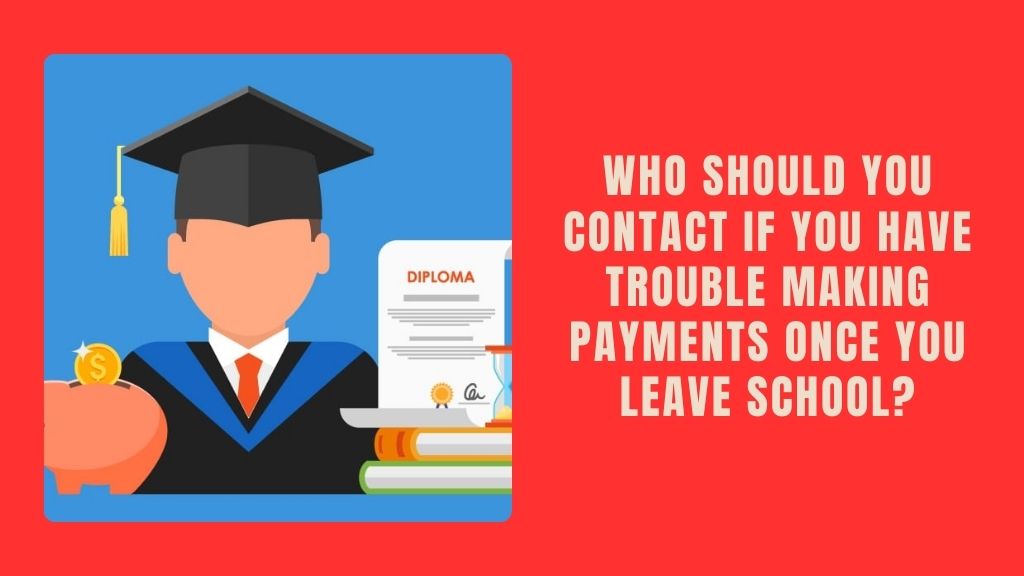Leaving school is a big step in life. It’s exciting to start a new chapter, whether you are starting your career or continuing your education. But with this change also comes responsibility, especially if you have student loans to repay. Many students find it difficult to manage their loan payments after school. They may feel stressed or unsure about what to do next. So, it is important to ask: who should you contact if you have trouble making payments once you leave school? Understanding the right steps and knowing the right people to reach out to can make a huge difference.
In this blog, we will explain everything in a simple and clear way to help you manage your student loan situation wisely.
Understand Your Student Loan Responsibility
Before looking for help, it is important to understand what kind of loan you have and what your responsibilities are. There are two main types of student loans:
- Federal student loans: These are provided by the government.
- Private student loans: These are offered by banks, credit unions, or other private lenders.
Each loan has different rules, repayment plans, and options for help. So, the first step is to check your loan documents or log into your loan account to find out the type of loan you have.
Also read: Who Do You Contact if You’ve Already Accepted More Loan Money Than You Need?
Don’t Ignore Your Payments
One of the biggest mistakes people make after school is ignoring their student loan payments. If you do not pay on time, your loan can become delinquent. If you ignore it for too long, it may go into default. This can hurt your credit score and lead to serious consequences like wage garnishment or losing eligibility for repayment help.
That’s why it’s very important to act early. If you think you won’t be able to make a payment, don’t wait. Reach out for help immediately.
Who Should You Contact if You Have Trouble Making Payments Once You Leave School?
Now, let’s answer the main question: who should you contact if you have trouble making payments once you leave school? The answer depends on the type of loan you have.
A. If You Have Federal Student Loans
If you have federal loans, the first person or group you should contact is your loan servicer. A loan servicer is the company that handles billing, payments, and help with your loan.
You can find your loan servicer by logging into the Federal Student Aid (FSA) website at studentaid.gov. Once you log in, you will see the name and contact information of your loan servicer.
Common federal loan servicers include:
- MOHELA
- Nelnet
- Aidvantage
- Edfinancial
Your loan servicer can help you:
- Change your repayment plan
- Apply for deferment or forbearance
- Enroll in income-driven repayment (IDR) plans
- Learn about loan forgiveness options
B. If You Have Private Student Loans
For private loans, you must contact the private lender or loan company directly. This could be a bank, credit union, or online lender. Look at your loan statement, email, or loan documents to find the lender’s contact information.
Private lenders are not required to offer as many repayment options as federal loans. But many do offer:
- Temporary payment relief
- Extended repayment terms
- Interest-only payments for a period
So, it’s always worth asking your lender what options are available.
Explore Repayment Options
When you contact your loan servicer or lender, they may offer several repayment options. Let’s go through some of the most helpful ones.
A. Income-Driven Repayment Plans (For Federal Loans)
If your income is low, you can apply for an income-driven repayment (IDR) plan. These plans adjust your monthly payment based on how much you earn. They include:
- Income-Based Repayment (IBR)
- Pay As You Earn (PAYE)
- Revised Pay As You Earn (REPAYE)
- Income-Contingent Repayment (ICR)
These plans can reduce your monthly payment and even lead to forgiveness after 20 or 25 years of payments.
B. Deferment or Forbearance
If you’re going through a temporary hardship—like losing your job or facing medical issues—you may qualify for deferment or forbearance. These allow you to pause your payments for a few months.
- Deferment may be interest-free on certain federal loans.
- Forbearance allows you to stop or reduce payments, but interest still adds up.
C. Loan Consolidation
If you have multiple federal loans, you can combine them into one with a Direct Consolidation Loan. This may lower your monthly payment and make your loans easier to manage.
D. Refinancing (For Private Loans)
If you have private loans or a mix of federal and private loans, you may consider refinancing. This means taking a new loan to pay off your old ones, often with a lower interest rate.
But be careful: if you refinance federal loans with a private lender, you lose federal protections like IDR and forgiveness.
Contact a Credit Counselor
If your loan payments are only part of your money problems, it may help to talk to a credit counselor. A certified credit counselor can help you:
- Make a monthly budget
- Prioritize your bills
- Understand your loan options
- Avoid scams
Look for a nonprofit credit counseling agency that is approved by the National Foundation for Credit Counseling (NFCC) or the Financial Counseling Association of America (FCAA).
They will help you understand your financial picture and make a plan to manage all your debts.
Stay Away From Student Loan Scams
When you are struggling with loan payments, you may find ads or phone calls from companies that promise to “erase your student debt” or “guarantee forgiveness.” Be careful!
Many of these are scams that ask for money to do things you can do for free by contacting your loan servicer.
Here’s how to spot a scam:
- They ask for an upfront fee
- They promise total loan forgiveness
- They pressure you to act quickly
- They ask for your FSA ID or personal details
Always contact your loan servicer or the Federal Student Aid office for help. You do not need to pay a company to manage your loans.
Talk to Your Employer
Some employers offer student loan assistance as part of your benefits. This could be a monthly payment toward your loan or help with repayment programs.
Check with your HR department to see if your company offers any support. This benefit is becoming more common, especially in larger organizations.
Communicate Honestly and Early
The most important thing you can do is to be honest about your situation. Whether you talk to a loan servicer, private lender, or credit counselor, explain clearly:
- Why you’re having trouble
- What your current income is
- When you expect your situation to improve
Most loan companies want to help you succeed. They would rather work with you than see you default on your loan. So reach out early, and don’t be afraid to ask questions.
Use Tools and Resources
There are many helpful tools available online that can help you manage your loans:
- Loan Simulator on studentaid.gov: Helps you find the best repayment plan.
- NSLDS (National Student Loan Data System): Lets you view all your federal loans in one place.
- Credit Counseling Agencies: Offer free or low-cost help.
- Student loan calculators: Help you plan your payments.
Use these resources to stay informed and stay in control.
Final Tips to Stay on Track
Here are a few final tips to keep your student loan situation under control:
- Set up automatic payments to avoid missing due dates.
- Update your contact information so your loan servicer can reach you.
- Check your loan balance regularly to track your progress.
- Apply for help as soon as you need it—don’t wait.
- Keep records of all communication with your lender.
Also read: Why Does the 30-year Mortgage Cost So Much More Than the 15-year?
Conclusion
Managing student loans after school can feel overwhelming, but you don’t have to face it alone. If you’re wondering who should you contact if you have trouble making payments once you leave school, start by reaching out to your loan servicer or private lender. They are there to help you find the right solution. Whether it’s an income-driven plan, deferment, or temporary relief, taking action early can protect your financial future.
Always remember, help is available. You just need to ask for it. Stay informed, stay calm, and take control of your student loan journey one step at a time.

